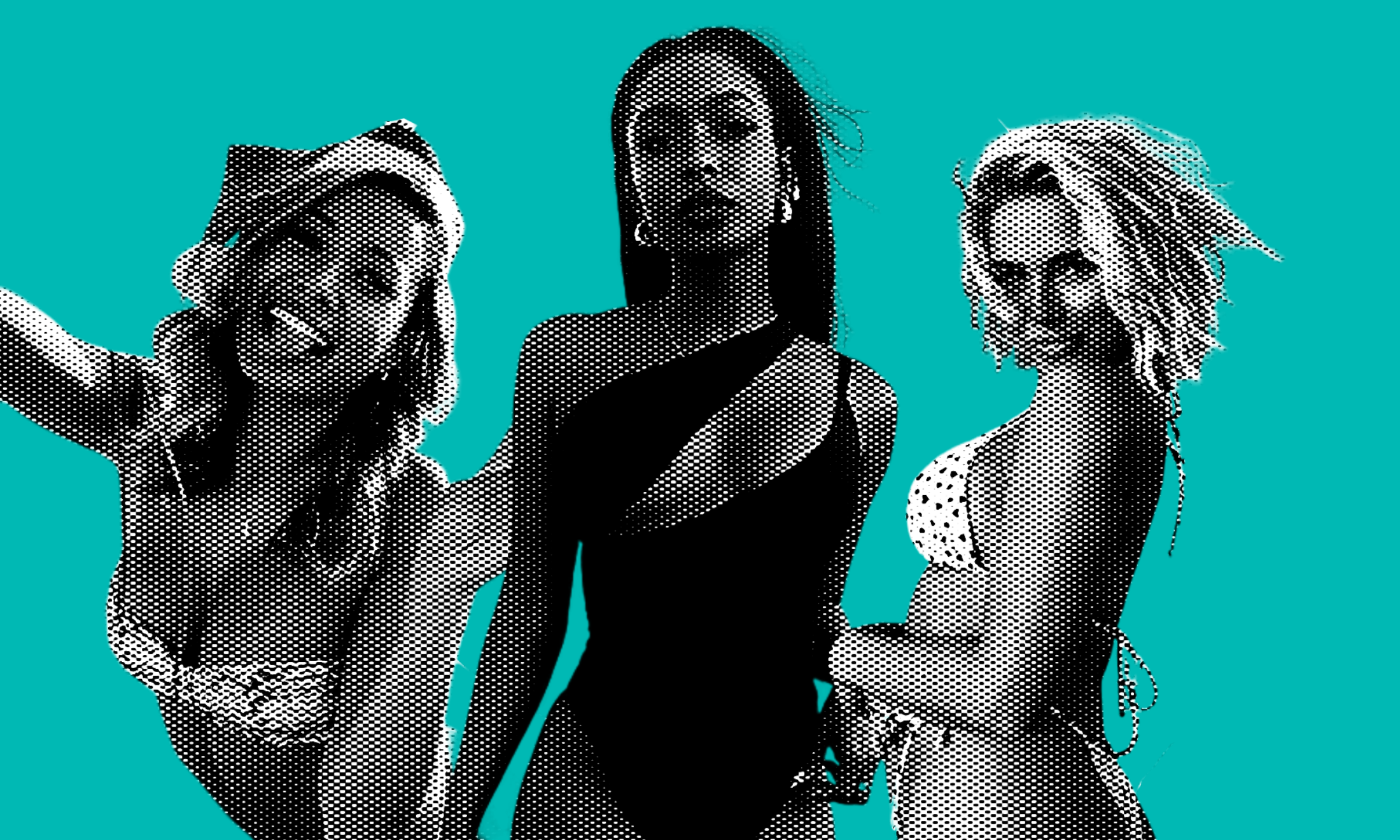
Instagram/Canva
Mainstream influencers ‘working’ in Dubai prove their industry can’t exist without exploitation
Why couldn’t they shoot sponsored content inside their giant grey homes?
DiyoraShadijanova and Editors
15 Jan 2021
Since restrictions have tightened in the UK and the country has entered its third national lockdown, “essential work trips” have become one of the only legally permitted reasons for international travel. So it’s no surprise that a crop of British reality TV stars-turned-influencers, many whose faces we recognise from TV shows like Love Island, The Only Way Is Essex and Geordie Shore have claimed that they’re travelling to Dubai for work. Some are even living there. Their so called “hard graft”? Sponsored posts and video content.
As Covid-19 death rates in the UK surpass 100,000, many are furious with influencers sunning themselves abroad. “The way these “influencers” are shoving Dubai, Gucci & Prada in everyone[‘]s faces whilst the majority of this country is suffering illness, death, unemployment, high suicide rates etc makes me sick,” wrote one social media user. “Sick of seeing influencers spending months in Dubai to escape the UK lockdown and not giving a fuck about the staff that are being forced to work non essential jobs just to serve them in a whole pandemic,” another added.
The issue has prompted a question: why are the UK’s reality TV influencers so reliant on being abroad in a pandemic in the first place? Why are they putting people in danger, allegedly driving up Covid-19 cases and inadvertently exploiting Dubai’s migrant workers, when they could just do their Oh Polly adverts from their live-laugh-love homes? Answer: because it’s what they’ve always done. We just haven’t noticed – or cared – this much before.
On some level, the influencers aren’t lying – they are there to make money. Dubai is the perfect backdrop for the “work” influencers do: selling us stuff. The job of an influencer is to sell us dreams that are just out of reach and fool us into thinking that if we buy their latest products or follow their work-out plan, we’ll be able to replicate their lives.
“As influencers continue to live lavish in Dubai, the dream they’re pushing on us has become too far-fetched to feel real”
A year ago, we could have deluded ourselves into thinking that soaking up the warm sun on a manufactured beach, partying on yachts and dining in the world’s most overhyped restaurants wasn’t that unattainable, even if it was really out of our financial reach. But the pandemic has shattered this illusion altogether by stopping travel for all but the elite and connected.
Now, as influencers continue to live lavish in Dubai, the dream they’re pushing on us has become too far-fetched to feel real. This is the reality that has been staring us in the face since influencer marketing began. But only with Covid-19 exposing the chasm between their lives and ours, are we starting to see through the filters and find it jarring, rather than aspirational.
Issues of exploitation are thrown into sharp relief with Dubai as a backdrop. There’s already chatter about the manner in which the city exploits migrant labour to keep up its shiny facade. Under the kafala “sponsorship” system, many Middle Eastern countries rely on influxes of migrant labour in the construction and domestic sectors to build their cities and work as servants in the home. This system has been largely criticised for the way it treats informal works, rarely giving them formal civil rights and giving them precarious jobs. Influencers are putting vulnerable people at even more risk just by being in the UAE.
None of this is new. Influencers aren’t the only ones flouting the rules and going abroad right now. There are plenty of wealthy people “escaping” to private islands and seeing absolutely zero consequences. These individuals aren’t forced to document their trips through short-term careers or for sponsored ads, because they can afford their privacy (except Kim Kardashian who simply loves to post too much to ignore the opportunity).
But the particular demands on influencers to put their lives permanently on show in order to stay relevant means that we’re finally seeing just how unethical these luxury lifestyles are. Once you see how unequivocally the entire influencer economy relies on exploiting others, it’s less aspirational and more exceedingly grubby – a much harder sell. Surprise! It’s capitalism!
“Influencers have been successfully making their money this way for years; it’s the circumstances that have changed, not their morality”
With questions being asked, even in broadsheet media, about why influencers are in Dubai, we’re finally seeing how hard it is for them to exist without their inadvertent exploitations and manufactured illusions. But they’re ultimately part of a much bigger picture; mere pawns in late-stage capitalist marketing networks that have been rendered dated by a general public that suddenly has no money, less patience and barely any desire for social media advertisements.
Influencers have been successfully making their money this way for years; it’s the circumstances that have changed, not their morality. No wonder they’re so confused and defensive, as a small part of a much larger commercial food chain.
For brands, it’s much more attractive to have clients market products in front of a palm tree in 40 degree heat, over grey, miserable Plague Island. There’s only so much aspirational content you can make on some fake grass, round the back of an extortionately expensive new build. Besides, Dubai has kept loose Covid-19 restrictions and actively promoted tourism through popular influencers. As our economy shrinks, any influencer looking for a stable string of brand deals will see their age mates and flock to where the money seems to be.
While moralising their trips abroad may feel cathartic, we need to ask why occupations that necessitate selling such rotten dreams exist in the first place – and why we’ve been so happy to support them up until this point.





